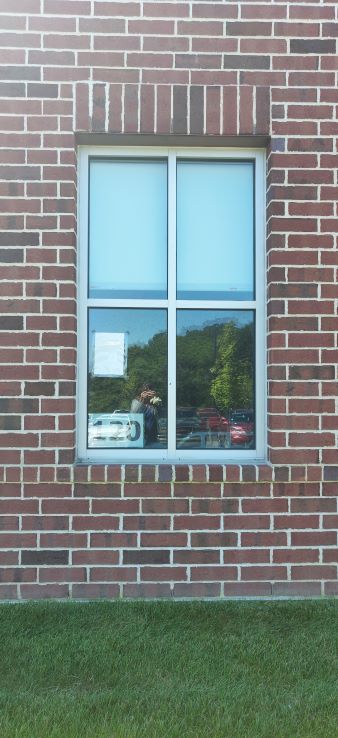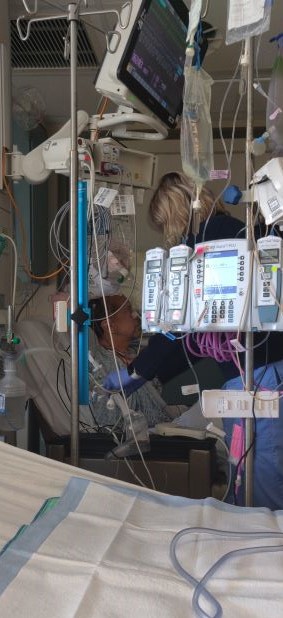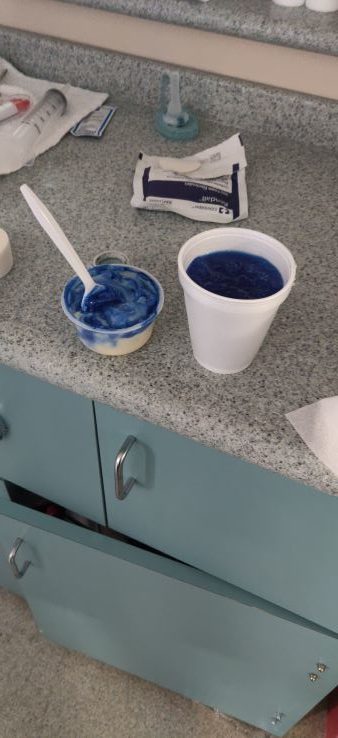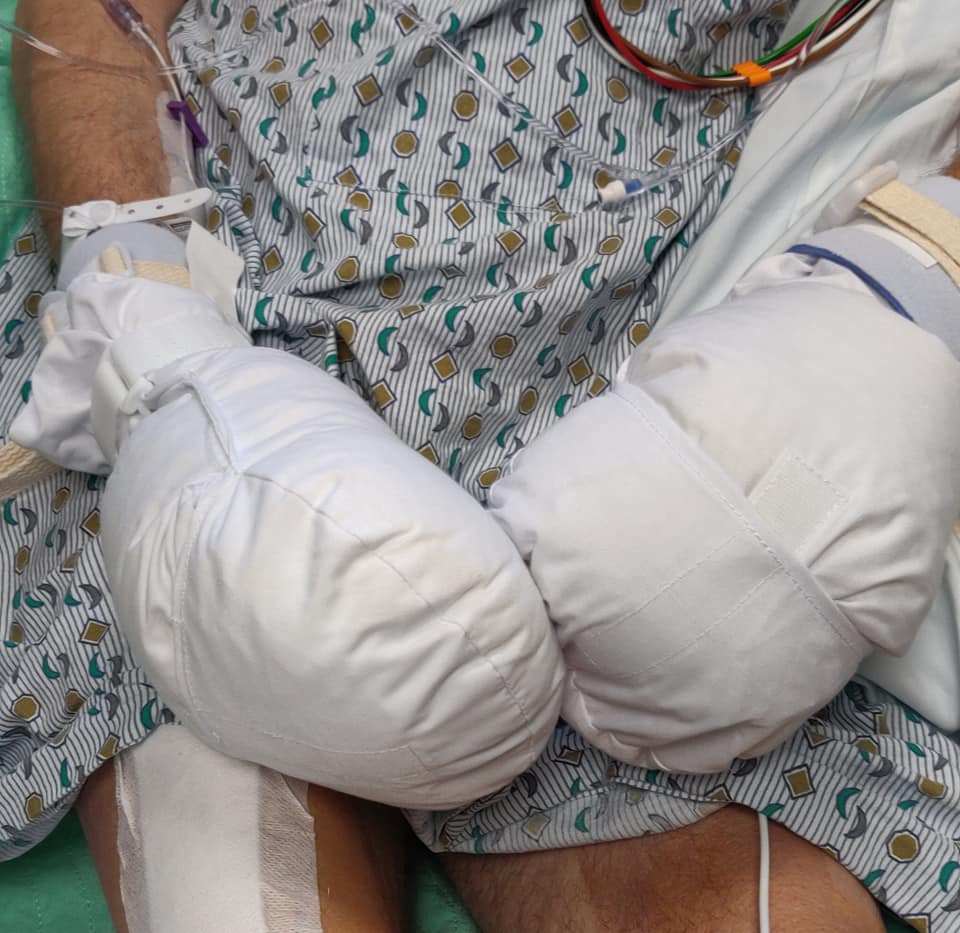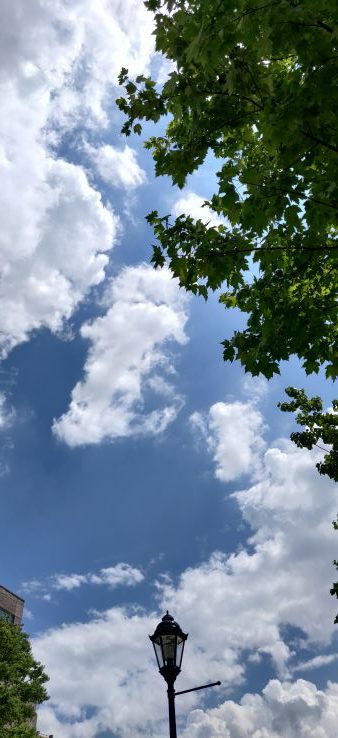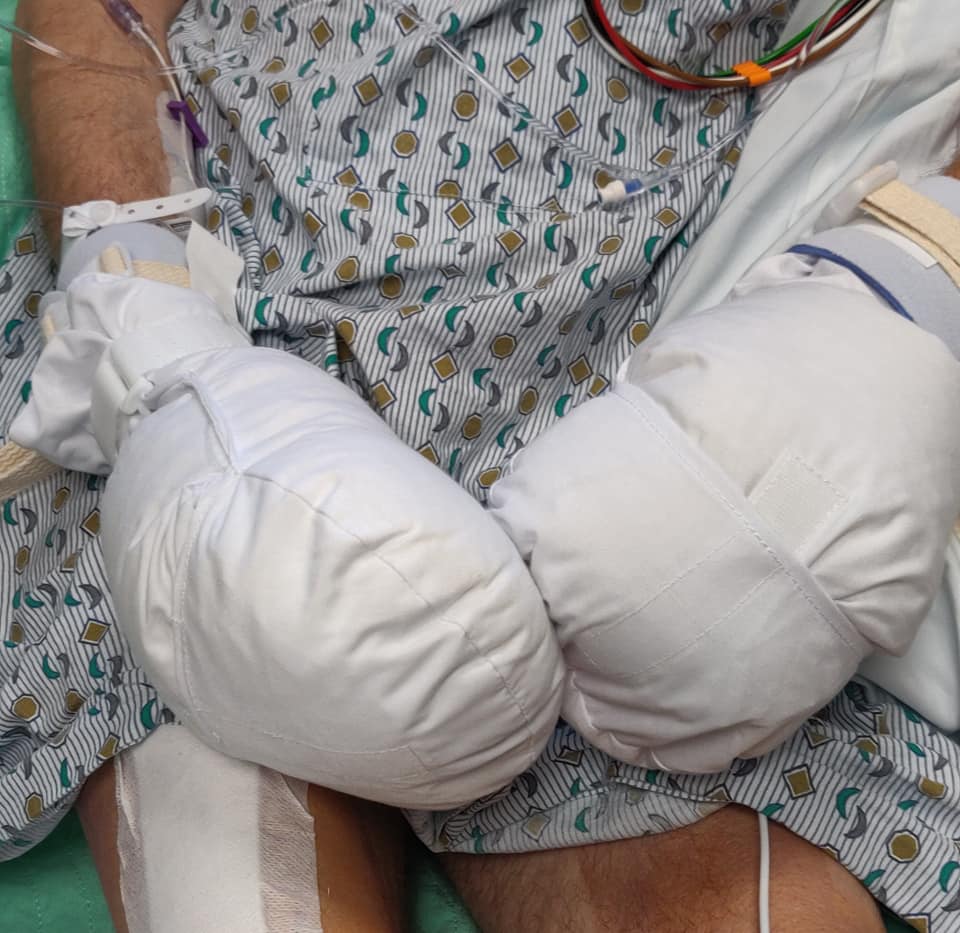I have been pishing. That is, I inhale deeply, blow air out of my mouth, and make a repetitive sound: pish pish pish pish! Way back when, I worked at an environmental education camp in Vermont. I learned this as a sound to call in small birds. You are not mimicking another bird, you are creating a strange noise that the birds are curious about and fly in to check out. And then you check them out. Try it in the woods sometime. It works. Try it in your car or home, and you have the equivalent of a self-care deep breathing exercise. Instead of calling in birds, you pish out stress.
Mark’s home. I really do not like using the word miracle. I mean, I’m a science teacher for goodness sake. And yet, how can we describe this? Luck? Skill? Perhaps a combination of all these things. My brain keeps working to find analogies to explain what has happened, what is happening. Sometimes, I told my brother Scott, I come up with an analogy that feels like that perfect sound of a bat making contact with the baseball. That sharp crack and the ball heads out over the field, going and going until it’s gone. Lately, I feel the wiff.
I felt that this morning trying to explain to Bobby, in the five minutes between his arriving and me leaving for work, what he had to watch out for to keep Mark safe, and why. Instead of “they removed his skull base” which seems a little harsh for 7am, I thought to say, it’s like his skull is a ziplock bag. The bag holds his brain and the cranial spinal fluid. The surgeons cut out part of the bag and then attached a different piece of plastic and now we are waiting to see if that plastic part holds.
That seemed too harsh, too.
“Mark has a headache. That can be a sign that the graft may have a leak. If he starts not making sense, or not responding to questions, or if clear fluid starts leaking from his nose, that’s when you throw him in your car and drive to Presby, or you call 911.”
Bobby, who is never at a loss for words, seemed at a loss.
Me too.
I thought about Mark as I drove to work. It felt today as it has in times before: like I’m leaving my preschool kid alongside of the road to fend for themselves while I go to work. Listen, I know that sounds horrible. That said, at the hospital a few weeks ago I did, by accident, call myself his parent. And keep in mind I never leave him home alone. Still, the guilt is there. The sense that he is so, so vulnerable.
He’s doing incredibly well. His incisions are mostly healed, with the exception of the hole where the trach had been. This hole, which from a science perspective I am delighted to learn is called a stoma (same name for the holes in leaves that allow respiration; same root for the word stomach), is a dime-sized dark cavern. Damp, dark, mysterious. And hopefully, closing soon. I was in over my head last week when I watched them pop the trach out, and scope up and down his windpipe. I had just watched them scope up his nose, to the base of his skull. “It’s pulsing nicely,” the surgeon said to the attending fellow. “Can you tell me what we are seeing?” I said, looking at the monitor. “That’s the graft,” the surgeon explained. “It’s pulsing because the brain is pulsing behind it.” The brain pulses. Things I had never thought about.
“The graft looks like a living, breathing piece of flesh. Fatty flesh,” I texted to a few people. My friend Sam, ever helpful in rational responses to impossible emotional experiences, reacted to this news with research. The delay from heart to brain would be in the range of 0.1s, he reported. In my group chat with my kids, they reacted with a variety of vomit and horror responses.
Can I again say that Mark is doing so well? Really, truly, amazingly well. He can walk independently. He seems safe on his feet. The OT gave him a good-to-go evaluation today. He’s enjoying a beer here and there (I CAN’T CONTROL HIM, PEOPLE). His appetite is better than ever.
Neurologically, he’s variable but largely good. Yes, when he answered the house phone and then listened for a while before hanging up, he reported that it was “someone wanting me to vote on a pencil sharpener.” Yes, when he finished eating his beloved ramen directly from the pot, he used the ramen spoon to scoop ice cream into the pot and ate that, too. Yes, he called our pandemic puppy Robert “Bobert” on Sunday.
Last night, he fondly said to Robert, “Good night, Albert. You’re a good dog.”
The neurosurgery nurse called today to say that last week’s CT scan shows there’s still some air in Mark’s brain. “It could just be taking longer than usual, but it should have reabsorbed by now.” They added a CT scan on Friday. I’m hopeful that the air will be less. If not, we are hopping back on the medical merry-go-round.
My school is so incredibly wonderful and is allowing me to start the year remotely. “I get it, Covid,” a few parents have said. Really, it would be a luxury if what I was worrying about was Covid. I am not even there yet.
Let’s see…what is a good analogy for this experience? It’s like taking care of a two year old who’s totally confident he is mostly fine. Whose brain was like a bucket of white paint with some red paint spilled into it. And then the paint was scooped out, but we’re waiting to see if the bucket has a leak.
It’s like trying to hold sand in your fist and doing pretty well, unless you look closely and see some grains are always falling.
Years ago, Mark taught me that in engineering, when you find something on a document that you are reviewing that needs further review, you write “UNSAT” on it. Unsatisfactory. Go back and try again.
My analogies are unsat. A little sand is falling. The ziplock bag may be holding. Occasionally the bat hits the ball. Some birds come in to check out the pish. There’s very little I can do except to just keep pishing.
